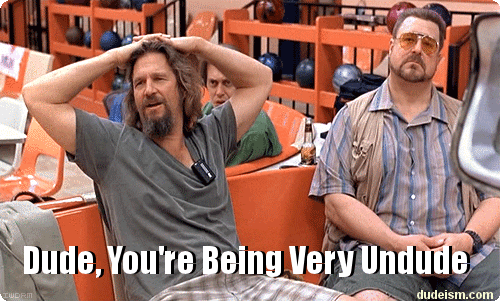“Violence is fomented by the imposition of singular and belligerent identities on gullible people, championed by proficient artisans of terror.”
– Amartya Sen, Identity and Violence
Chris Henderson over at Approaching Justice is hosting a round-table of sorts to discuss the question: Are Mormons Christians?
It is an interesting question, even for those on the outside. As we saw last week, some people in prominent positions in Buddhism were quick to claim that Aaron Alexis couldn’t really be a Buddhist:
Melvin McLeod, Editor-in-Chief of the Shambhala Sun and Buddhadharma magazines … writes, “when it comes down to it, he wasn’t a Buddhist, no matter what he called himself. If he really were, he couldn’t have done this.”
Our power to define ourselves and others is both a result and an exercise of power. Alexis is dead and McLeod has a rather formidable bully pulpit. In terms of Christianity this question may be facing a gradual shift in power. Mormonism is on the rise and with that comes an increasing need to listen to Mormon claims about self-identity. What do Mormons say, then? Chris writes:
For most Mormons, the question of “Are Mormons Christians?” is a silly, if not irritating, one. We proclaim and sing of our belief in Christ. His name plays a prominent role in the official name of our church, The Church of Jesus Christ of Latter-day Saints.
As the Book of Mormon prophet Nephi proclaimed:
And we talk of Christ, we rejoice in Christ, we preach of Christ, we prophesy of Christ, and we write according to our prophecies, that our children may know to what source they may look for a remission of their sins.
2 Nephi 25:26
Mormons tend to think that this should be sufficient enough of an answer. Maybe it is. But it clearly has not persuaded many.
The split, however, between Mormons and (other) Christians comes in the understanding of the Trinity as three separate beings in a unified purpose rather than one God in three Persons: the Father, Son, and Holy Spirit. The Christian belief in the unity of the Trinity, or “triune God” is found most clearly in the Nicene Creed, or Nicene-Constantinopolitan Creed, completed in 381 CE. Before that, and after, there were other followers of Jesus who held different conceptions of both Jesus’ divinity/humanity and the nature of God. The List of Christian Heresies compiled over at wikipedia is telling of the amazing diversity of beliefs within the community of people claiming to follow Jesus.
That diversity should tell us something: that the ascendance of this one particular way of understanding the nature of Jesus and his teachings was one historical contingency among many.
I can understand Christian practitioners wanting their belief to be the ONE TRUE way, and sadly a lot of blood has been shed in the quest to eliminate the other ways (as I discovered in the case of the Cathars recently).
Und willst du nicht mein Bruder sein,
So schlag’ ich Dir den Schädel ein.(And if you will not my brother be, then thy skull I’ll smash for thee.)
– German saying, via Kwame Anthony Appiah, Cosmopolitanism: Ethics in a World of Strangers
And of course Buddhists do the same: who hasn’t been told or read in some comment section somewhere that you must believe in karma or reincarnation to be a Buddhist? Based on the little bit of discussion on this topic I have read, I expect to see plenty of scripture quoted to bolster the views of one side or the other (and again, Buddhists do this too).
But perhaps, in this age of increasing cosmopolitanism, the best thing to do is simply ask: Dude, are you a Christian?
Yes?
Okay then. Cool. Let’s talk about what that means to you and I can share what that means to me.
Allowing others to identify themselves empowers them. Accepting their choices opens the door to dialogue, where both parties can learn and grow.
That reminds me of one of my favorite religious jokes:
A man was standing on the edge of the Patheos Street Bridge — about to jump.
A passer-by tried to talk him down; he asked: “well, are you a Christian?” to which the man answered “yes.”
He exclaimed: “great, me too; what kind of Christian are you? Orthodox, Catholic, Protestant?” The answer was: “Protestant.” ”
Me too; what kind of Protestant? Anglican, Baptist, Presbyterian, Methodist, Pentecostal?”
The man got excited: “me too; are you an initial evidence or a third wave Pentecostal?” “Initial evidence.” ”
Me too; what kind of initial evidence? Are you a AOG, CRC, COC, CCC?” “AOG.”
Now, he got really excited: “Me too; are you Premillenial, Post Millenial or Amillenial?”
The guy on the bridge said: “Amillenial” and with that the passer-by, becoming very angry, screamed: “Die, heretic!” and pushed him off the bridge.
(by Emo Philips – thanks to James for the attribution in the comments)












